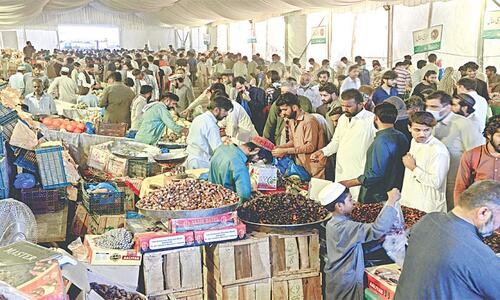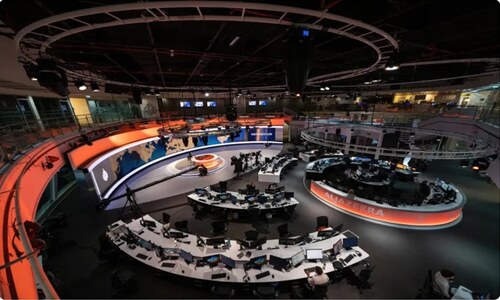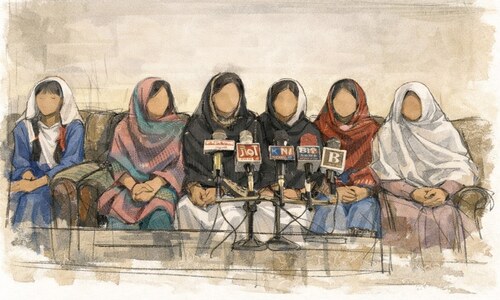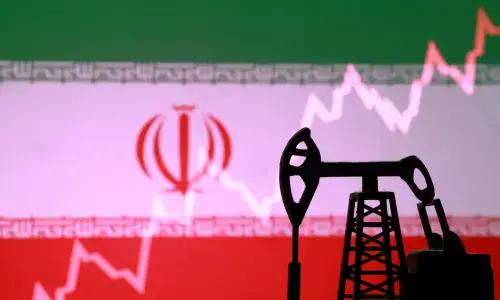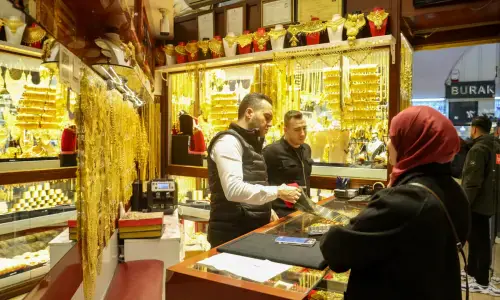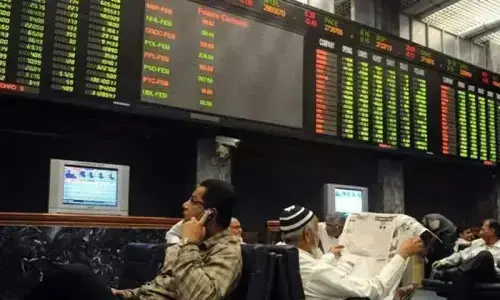Recently, American comedian Liz Miele talked about her experience in securing a visa to Pakistan, which she described as the “most paperwork” she ever had to do. She was lambasted in the comments section of the post by righteously frustrated Pakistanis, who had suffered the tedious and expensive application process for her homeland, only to be rejected on the basis of their nationality.
To be fair to Miele, she found the incompetence of the Pakistani embassy worth her stand-up material because it literally misplaced her passport. But then, she was called in for an interview, which prompted her to suggest how Pakistan needed to “loosen up” if it hoped to become a tourist destination!
I moved back to Karachi only a few years ago, after a decade spent in Dubai, leaving behind affordable online visa portals and quick turnaround times. The irony in Miele’s statement is not lost on anyone familiar with the American visa process from Pakistan. With long lines, endless waiting, no seating, then prattling your life history in front of strangers to a mediocre white person with a pitchy twang — all to be declined — is nothing short of cruel.
The frequency of visa rejections doesn’t improve if you apply to destinations across the Atlantic — around 40 percent of all Schengen visas were declined in 2023, which cost Pakistanis well over three million euros. I would have been among them, but so indignant was I at having to prepare for this process six months in advance, I avowed never to travel to Europe.
Between Kafkaesque red tape, a discriminatory global visa regime and national self-loathing, the dream of travel for many Pakistanis is often just that — a dream
But it wasn’t hard for the continent to lose its lure when I discovered how the system got even worse, with visitors to some of the most powerful countries in the world treated by their hosts with a criminal frivolity. For instance, to actually make my intended flight to Berlin, I would’ve had to pay an extra Rs30,000 for an appointment to a consular interview. An underground business of “agents” has been booking every available interview slot, which are completely free, then selling them to hopeful travellers with hefty price tags.
And Europe knows this. At the close of 2024, a former colleague of mine couldn’t get an appointment, despite a full scholarship to a prestigious degree programme in Germany. She shopped for interview dates for months, the cheapest of which was a whopping Rs250,000. She wrote countless letters to the embassy, which essentially told her that there was nothing it could do. She even had to ask multiple people with some influence to help her secure a timely slot.
The rest of what constitutes the mythical “West” isn’t kinder. Another friend’s father was absent at his son’s nikaah because Australia rejected his visa, even though he had given that country tens of thousands of dollars paying for the education of his two sons. And aspiring to the realm of “developed” countries by turning away South Asians, the United Arab Emirates (UAE) rejected my father’s visa last year, even though he had served the engineering industry of Dubai in a leadership role for six years until 2016.
So why do Pakistanis — despite their due diligence, transparent footprints, and huge visa fees amidst a declining currency — suffer this fate? It depends on who you ask but, without fail, a range of middle-income homes will blame their own countrypeople for their seemingly inherent inability to adhere to the laws and customs of whatever land they inhabit. For most, the knee-jerk reaction is to blame the working class, who disproportionately find their travel opportunities curtailed — tragically mirroring the dwindling opportunities they have at home.
This nonchalant labelling of a population that exceeds 250 million as uncivilised, incorrigible, unteachable, uneducated and other colourful adjectives is nothing short of discrimination. What alternative explanation is there when the system demands every detail of your life, every government document ever produced with your name on it, then puts you through an invasive public interrogation to uncover any “hidden motivations” behind your travel, only to turn you down based on the rumoured machinations of people that you have never met?
The shallowness of Pakistanis indulging this discrimination against others baffles me. Never has anyone from any other country so gleefully associated with foreigners in rejecting their own compatriots!
It’s as if colluding with the “civilised” world against their own people assures such individuals of their inherent superiority, of being “chosen” by the wealthier half of the world. Their shame at the facticity of their national association seeks to soothe itself through the punishment of those with the very same connection.
The Pakistani diaspora contributes to multiple global economies across the world, including essential labour and skilled professionals in the Gulf countries. In places as far flung as Japan, tourists drop thousands of dollars — currency that is traded delicately with covert “money-men” to circumvent restrictions on buying it alongside Pakistan’s ever-looming fiscal crisis. And there is no evidence of the exceptionally terrible behaviour of Pakistanis abroad — a population too large to flippantly lump together.
Conversely, for those sailing between countries with the privilege of visa-free travel — as is often the case with Westerners — the question of whether you can be trusted or not doesn’t even arise.
Pakistan’s own poor diplomacy tactics don’t help. As a recent example, amidst the astounding number of visa rejections from the UAE, our government honoured the Crown Prince of Abu Dhabi with a Nishan-i-Pakistan. We forget the countless working-class Pakistanis languishing in Emirati prisons, their passports confiscated by extractive employers, suffering racial slurs and discriminatory behaviour on the regular — a phenomenon so institutionalised, I have witnessed it being exemplified by refugees from Palestine and Iraq!
Even those who find a moderate level of success in the UAE can shed the tragedies of their home countries to be standard-issue “Arab”, always a few rungs above Pakistanis in the nation-state hierarchy. When faced with the Sisyphean task of keeping their work visas secured, this ensures that they fail to connect with the very labour that built their safe haven.
It’s fitting to see the change we want to see in the world, at home. Policewoman Shabana Jilani, a deputy associated with the Karachi police, won the love and esteem of countless people, within and outside of Pakistan’s borders, with her kind and patient treatment of a heartbroken, indignant, quick-witted yet vulnerable American tourist.
Such a display of humanity — in the cold, harsh terrain of the “civilised” world — remains an unlikely prospect.
The writer is a corporate sustainability expert and activist. She can be contacted at rbokhari09@gmail.com
Published in Dawn, EOS, April 27th, 2025


